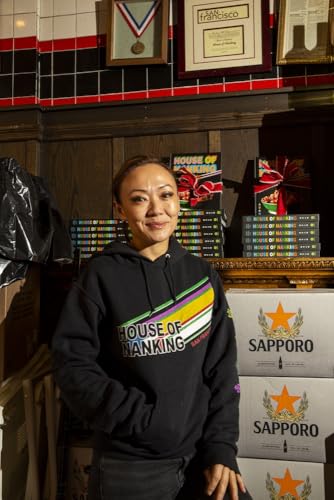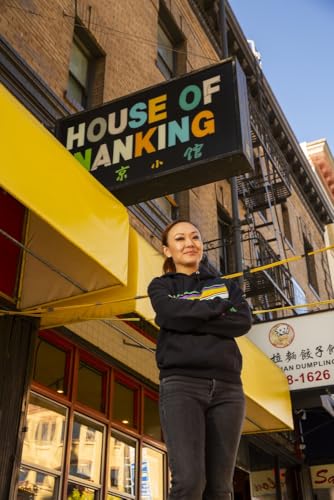In Part 2, we hear the story of how Danielle and Sara met and eventually acted on the totally bananas (but shouldn't be) idea of opening a women's sports bar. Sara and her partner had just landed in San Francisco and fell right into a supportive community. Not that they didn't have that back in the UK. But their friends there were starting to settle down and have kids, and that life wasn't for them.
Then we turn to the story of how Danielle and Sara met, on a soccer field, of course. An SF Spikes soccer field to be exact. Danielle was a leader in the queer nonprofit organization at the time, a role she fell into somewhat by accident, but she did manage to make some needed updates. One of those was to bring in more women and non-binary folks. And she considers her time in leadership successful in part because she was able to hand it off and step away.
Shortly after their first meeting came the idea to open a women's sports bar. Danielle had been putting together watch parties for women's sports championship games for a few years. It involved calling around to see what bars would air the game in question. Not easy. Eventually, she mentioned to a friend the idea of opening her own place. Sara overheard this and chimed in, "I wanna do that!" Neither of the two had any experience opening and operating a place like Rikki's. They did both work service jobs when they were younger. But what they did have under their respective belts was important—building community.
Danielle's time with the Spikes also served her well as far as things like budgets and taxes are concerned. The watch parties Danielle had organized became more and more of a thing, and started happening regularly at SF spots like Standard Deviant. In addition to offering space, folks from the brewery helped them with financial stuff. Getting wildly differing advice from various sources helped Sara and Danielle learn more about themselves and the two as a team.
Opening Rikki's around the time that the Golden State Valkyries' inaugural season was starting didn't hurt matters.
Danielle describes Rikki's early days, being at capacity. She'd walk the line of folks outside and let them know the situation. She even offered neighboring bars that might have Valkyries games on. She talks about being struck by the amount of people who stayed there anyway, watched the game on their phones, and eventually made their way into San Francisco's women's sports bar.
We rewind a little to talk about Sara and Danielle's decision to name the bar Rikki's, after Rikki Streicher. Back in the day, Streicher owned lesbian bars such as Maude's and Amelia's. We sidebar to hear some of Sara and Danielle's name ideas that didn't make it. Diva Dribble Dive might be my favorite. But back to Rikki …
They wanted a name that resounded with and was relevant to San Francisco. They went through lists of historic lesbian and women's bars, and kept seeing Rikki's name listed as an owner. They dug deeper on this mysterious character to find that Rikki had a very strong connection to local sports in addition to the bars she ran. She was one of the first sponsors of the Gay Games. The woman part was there. The sports part was there. And the queer part was there. Check, check, check.
Then we go back to opening the bar. They announced the location on New Year's Day 2025 and opening day was … sometime in mid-June. Because they're still in their first year as a business, every holiday or event either is or feels brand-new. And because they got started amid the Valkyries' rise, they're finding new ways to utilize the space. That includes trivia nights, live music and DJs (eventually; it's all being applied for), other theme and game nights, and soon, the Olympics.
We end the episode hearing what surprised Danielle and Sara about opening San Francisco's women's sports bar.
Photography by Marcella Sanchez
 30 分
30 分 31 分
31 分 28 分
28 分 29 分
29 分 2026/01/2228 分
2026/01/2228 分 2026/01/2027 分
2026/01/2027 分 2026/01/1334 分
2026/01/1334 分 2026/01/0830 分
2026/01/0830 分
